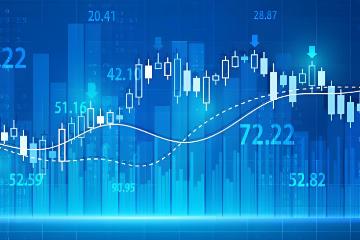European Large Caps Continue to Shrink
Advertisements
Last Friday, a sharp decline in Novo Nordisk's market value, which plummeted by $93 billion due to underwhelming results from a new generation of weight-loss drugs, reverberated across the European stock marketsThis incident dealt yet another blow to European large-cap stocks, which have been struggling to close the performance gap with their Wall Street counterparts over the past year.
Propelled by the so-called “Magnificent Seven” in the American market, the top ten stocks in the U.S. achieved double-digit returns in 2024. In stark contrast, major European stocks, including the Ozempic manufacturer, Novo Nordisk, as well as Nestlé and LVMH, are facing lossesThe decline in Novo Nordisk's stock was particularly dramatic as it wiped out earlier gains amassed following reports of its market-dominating weight loss treatments.
This downturn has inevitably affected the broader European market, with predictions suggesting that the Stoxx Europe 600 index will finish the year with its worst relative performance against the S&P 500 in nearly 25 years
Additionally, a curated basket of industry-leading European stocks compiled by Goldman Sachs has seen disappointing results, for the first time lagging behind the Stoxx Index since 2017.
According to strategist Michael Field, the primary driver in the U.S. has been these “Magnificent Seven.” He elaborated, “While Europe is not devoid of large companies, the disparity in scale is simply too great.”
European corporations are contending with two significant disadvantagesField explains that one of these concerns the size of the companies themselvesGoldman Sachs’ basket of major European stocks, referred to as GRANOLAS, boasts a collective market cap of around $2.5 trillionIn contrast, the “Magnificent Seven” have amassed an increase of approximately $5 trillion just this year, culminating in a total market value exceeding $16 trillionAnother aspect impacting European stocks is the prevalence of traditional economy shares, with only two members, SAP SE and ASML, from the GRANOLAS basket aligning with the technology sector.
Moreover, sectors such as automotive, industrial, and mining are often heavily influenced by economic cycles, leading to volatility in stock performance
- Cambrian Soars Past Nvidia, Broadcom with 4x Surge
- The Fall of German Auto Giants
- Perspectives on Tech Stocks After Rate Cuts
- Yen Plunge Casts Doubt on Japan Rate Hike
- Treasury Yields Rise Amid Asset Scarcity
For instance, luxury stocks have recently suffered due to a noticeable slowdown in consumer demand from China, while Nestlé has reported sluggish sales growth, edging its stock towards one of its worst years on record.
Guy Miller, Chief Market Strategist at Zurich Insurance, pointed out a fundamental structural issue in Europe: the lack of truly global leaders, especially within the most dynamic sectors like technology and artificial intelligence.
However, signs are emerging in the market that suggest a growing sense of unease regarding the robust performance of the American tech giantsMatthew Chopa, portfolio manager of Franklin Technology Fund, stated that while he appreciates holding shares in these seven influential companies, he is also strategically investing in a plethora of smaller software firms, anticipating their growth potential.
In addition to that, due to comparatively lower valuations of European stocks and potential increases in spending in Germany, many analysts expect a potential rebound in the European economy.
As we gaze into the crystal ball for what next year’s market might hold, Bloomberg undertook extensive surveys, and many strategists, after thorough analyses, concluded that significant changes are not on the horizon
Optimistically, they predict Wall Street is poised to script yet another chapter of triumph in 2025. Some analysts have pointed out that certain policies currently favoring the “Magnificent Seven” might play a role, but digging deeper reveals that the sustained and strong profit growth capabilities of these companies are perhaps the most pivotal factor driving their market appealAccording to meticulous data compiled by Bloomberg, projected earnings for the “Magnificent Seven” are expected to rise by an impressive 15.7% next year, in stark contrast to the anticipated growth of just 9.9% for the GRANOLAS index.
Ian Barnes, Chief Investment Officer at Netwealth Investments Ltd., explained, “In an environment where macroeconomic growth is relatively uninspiring and other industries face numerous challenges, the reliability of earnings delivery has instilled confidence in the market towards American tech companies.”
